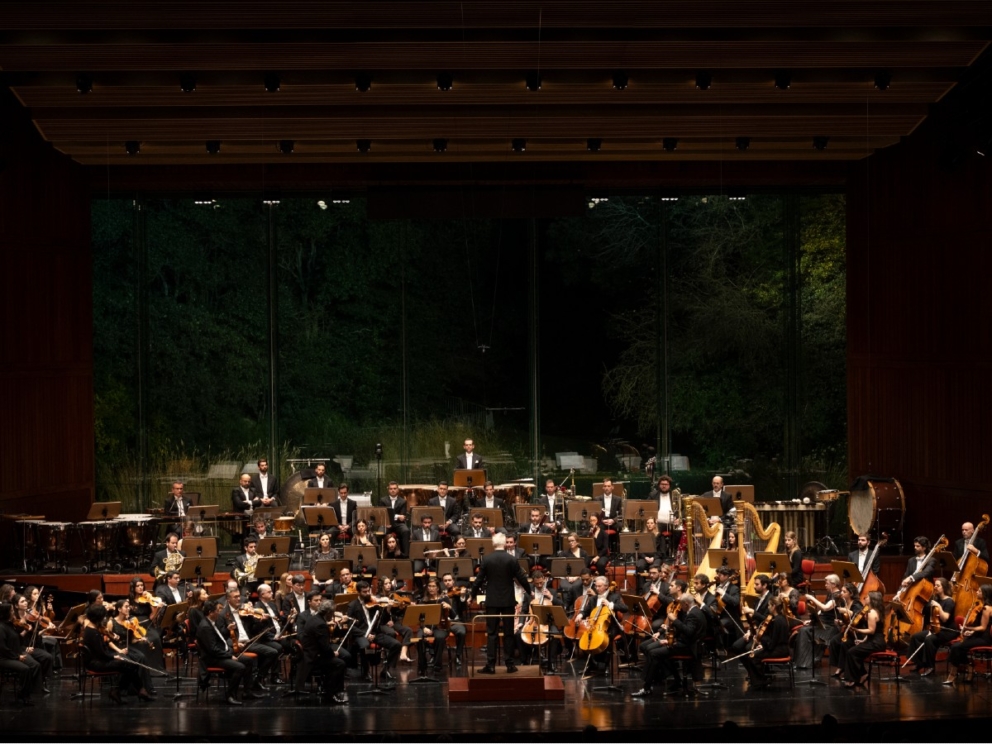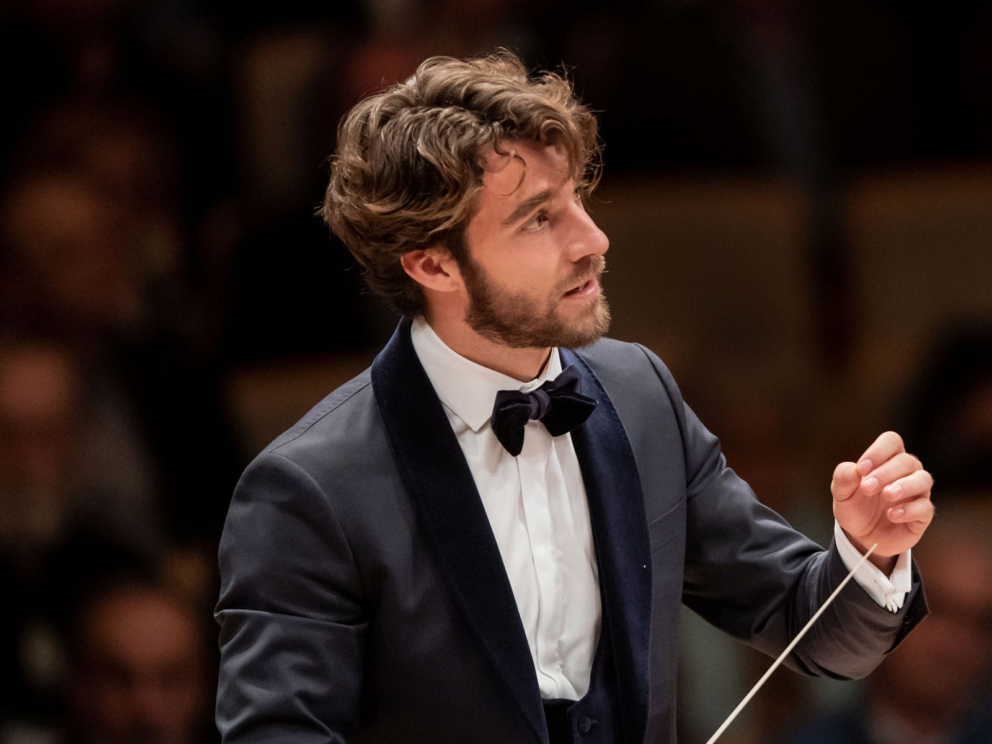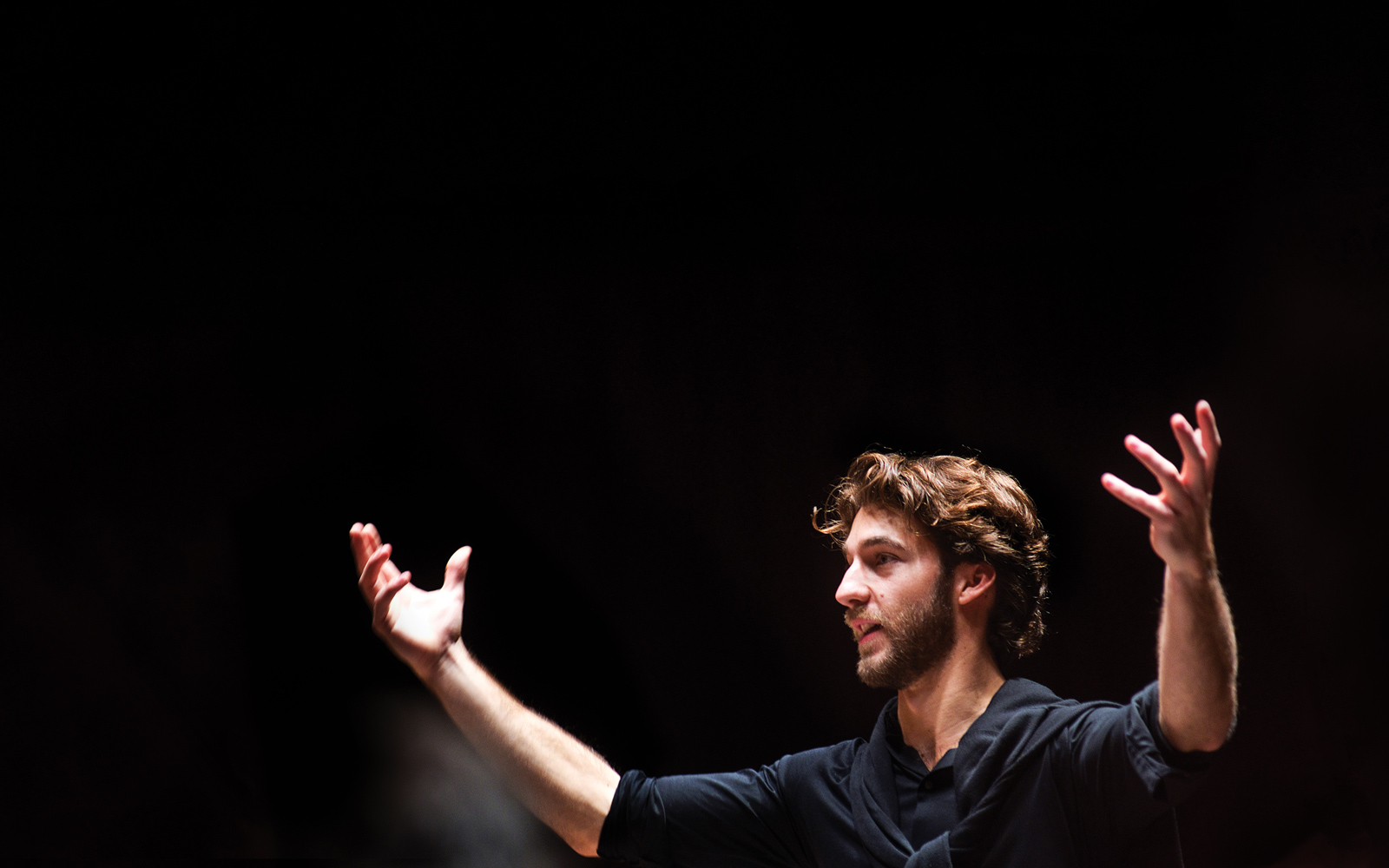Mahler’s 6th
Gulbenkian Orchestra / Lorenzo Viotti
Event Slider
Date
- / Cancelled / Sold out
Location
Grand Auditorium Calouste Gulbenkian FoundationPricing
50% – Under 30 years old
15% – Over 65 years old
- Conductor
-

Gulbenkian Orchestra
In 1962, the Calouste Gulbenkian Foundation decided to establish a permanent orchestral ensemble. Originally with only twelve musicians (strings and continuo) it was named “Orquestra de Câmara Gulbenkian”. This collective was successively enlarged and today the “Orquestra Gulbenkian” (the name it has adopted since 1971) has a permanent body of sixty instrumentalists, a number that can be expanded depending on the repertoire.
This structure allows the Gulbenkian Orchestra to interpret works from the Baroque and Classical periods, a significant part of 19th century orchestral literature and much of the music of the 20th century, including works belonging to the current repertoire of the traditional symphonic orchestras. In each season, the orchestra performs on a regular series of concerts at the Gulbenkian Grand Auditorium in Lisbon, where it has had the opportunity of working together with some of leading names of the world of music (conductors and soloists). It has also performed on numerous locations all over Portugal, in an effort to decentralize music and culture.
The orchestra has been constantly expanding its activities in the international level, performing in Europe, Asia Africa, and the Americas. In the recording field, Orquestra Gulbenkian is associated to labels as Philips, Deutsche Grammophon, Hyperion, Teldec, Erato, Adès, Nimbus, Lyrinx, Naïve and Pentatone, among others, and this activity was recognized with several international prizes.
-

Lorenzo Viotti
Principal Guest Conductor
One of the most dynamic conductors of his generation, Lorenzo Viotti is currently Chief Conductor of the Netherlands Philharmonic Orchestra and the Dutch National Opera, where he conducts two much-anticipated productions in the 2024/2025 season: The Amsterdam premiere of Barrie Kosky’s celebrated Die Fledermaus and a new production of Benjamin Britten’s Peter Grimes, directed by Barbara Horáková. He also continues his relationship with Oper Zürich with a new production of Korngold’s Die Tote Stadt, directed by Dmitri Tcherniakov.
His symphonic season features his return to the United States for his debut with the Los Angeles Philharmonic and Pittsburgh Symphony Orchestra. In Europe, to deepen his relationships with leading symphony orchestras, he returns to the Filharmonica della Scala, Orchestra dell’Accademia Nazionale di Santa Cecilia, Gürzenich Orchestra, Orchestra of the Deutsche Oper Berlin and the Gulbenkian Orchestra Lisbon, where he was Chief Conductor from 2018-2021. Furthermore, he makes his debut with the Orchestre de la Suisse Romande and closes the season with concerts the Vienna Symphony. Viotti concludes his tenure as Music Director of the Netherlands Philharmonic Orchestra with six varied programs in the Concertgebouw and a tour within The Netherlands.
Highly esteemed as symphonic guest conductor, Lorenzo Viotti has worked with many of the world’s leading orchestras, including the Vienna Philharmonic, Berlin Philharmonic, Royal Concertgebouw Orchestra, Saxonian State Orchestra Dresden, Gewandhausorchestra Leipzig, Cleveland Orchestra, Vienna Symphony Orchestra, Swedish Radio Symphony Orchestra, and the Royal Philharmonic Orchestra, and further symphonic highlights will see the continuation of his close collaborations with the Munich Philharmonic, State Orchestra Berlin, and Tokyo Symphony Orchestra.
Born into a French-Italian musical family in Lausanne, Lorenzo Viotti studied piano, singing, and percussion in Lyon and attended orchestral conducting courses with Professor Georg Mark in Vienna, where he also performed as percussionist with numerous renowned orchestras including the Vienna Philharmonic. He completed his conducting studies with Nicolas Pasquet at the University of Music Franz Liszt Weimar and has won several prestigious conducting competitions, most notably the Nestlé Young Conductors Award at the Salzburg Festival in 2015, the 11th International Conducting Competition of the Cadaqués Orchestra, and the MDR Symphony Orchestra Conductors Competition, and in 2017 was honoured as “Newcomer of the Year” at the International Opera Awards in London.
Gustav Mahler
Symphony No. 6, in A minor
Mahler’s Symphony No. 6, also known as the “Tragic symphony”, seems to express the weight with which the composer suffused the score, presciently foreseeing the events that would overtake his own life. Overcome by a deep sorrow that Mahler would soon come to experience himself, the entire symphony edges towards a truly tragic conclusion. In the space of a year, one of his daughters would die while still a child, the composer would be diagnosed with a deadly illness and his connection with the Vienna Opera would come to an end. Composer Aaron Copland wrote in 1941 that this work, performed here with conductor Lorenzo Viotti’s usual passion, “is full of human weaknesses”. As enigmatic as it is thrilling.
Sponsor Gulbenkian Music
Sponsor Gulbenkian Orchestra
The Calouste Gulbenkian Foundation reserves the right to collect and keep records of images, sounds and voice for the diffusion and preservation of the memory of its cultural and artistic activity. For further information, please contact us through the Information Request form.
